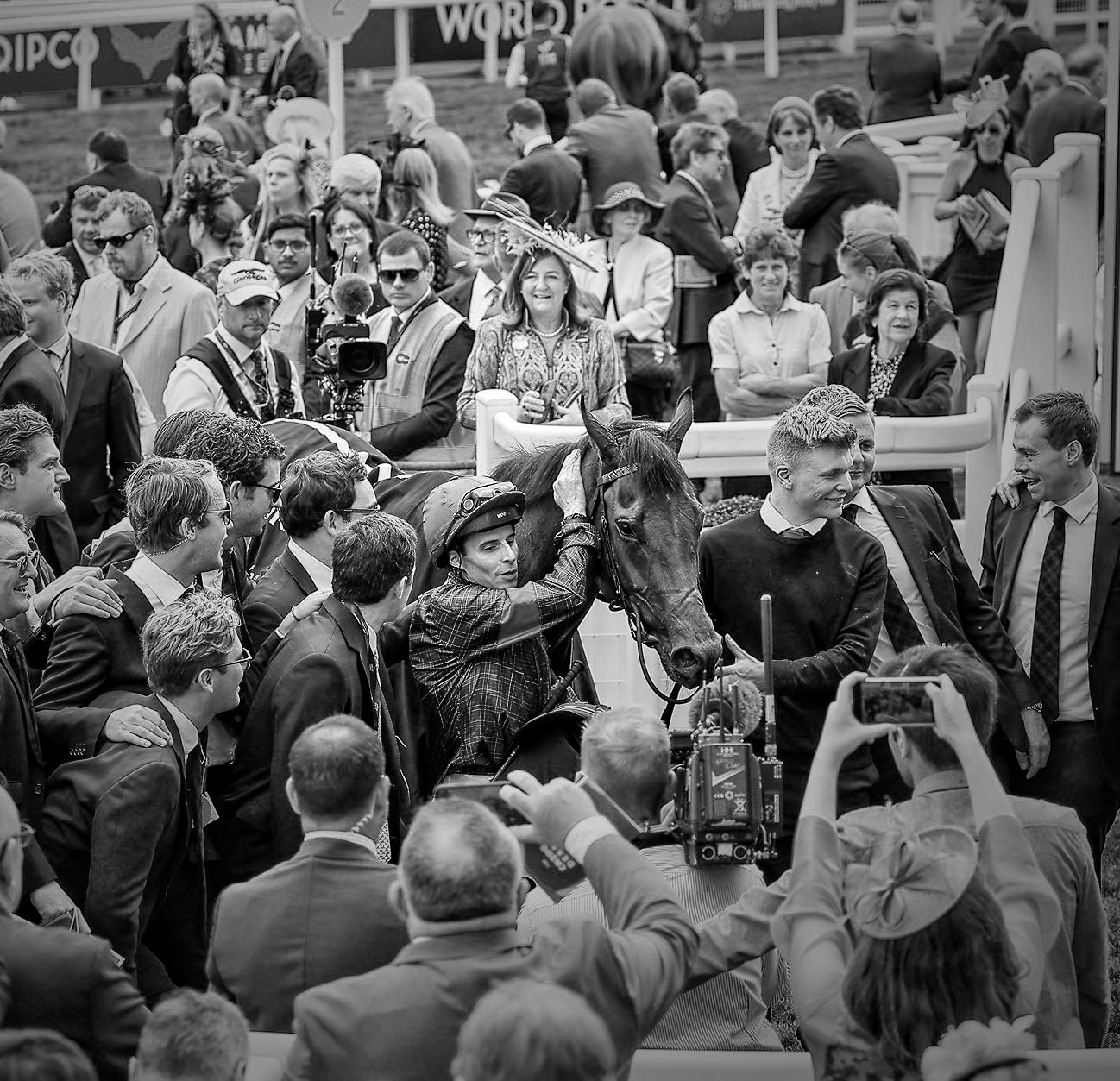DREAM, BELIEVE, ACHIEVE

365 DAYS IN THE ROA



365 DAYS IN THE ROA

The fair and equitable distribution of prize money remains at the top of the ROA priorities. Our role is to ensure that owners are rewarded for their commitment, dedication and contribution to the sport. The ROA continues to be actively involved with prize money conversations, shaping the agenda and challenging discussions to ensure that prize money levels continue to improve and, at a minimum, are protected. As part of the Thoroughbred Group, we work with the industry to identify, develop and promote initiatives to promote the financial returns across the sport and ensure that owners are rightfully rewarded.
In 2022, there was a fresh injection of cash into many prize funds, with ARC, Jockey Club Racecourses (JCR) and Hamilton Park announcing record prize money. Alongside this, many meetings and festivals saw prize money return to pre-pandemic levels, with the Royal Meeting and Aintree offering prize funds greater than their 2019 figures.
The ROA welcomes Levy generation and commercial agreements, however recognises that this funding must translate into an increase in the prize money pot if the virtuous circle is to enrich the sport.
Going forwards the ROA will continue to deliver on its commitment to work towards redressing the disparity and imbalance in existing commercial arrangements. The ROA’s overarching aim remains to ensure greater transparency and a more equitable distribution of prize money amongst all participants, whilst highlighting the absolute requirement for owners to be properly recognised and rewarded.
It has been an exceptionally turbulent twelve months from both a macroeconomic perspective as well as geopolitically. We have seen the ebb, flow and hopefully the retreat of Covid-19, with the United Kingdom one of the first nations out of the starting blocks towards normality. Post pandemic, racing also witnessed a rapid return to normal, with owners and fans back on racecourses and some of Britain’s biggest festivals seeing bumper numbers of spectators on course. The prevailing economic and political backdrop has brought some fresh challenges, the war in the Ukraine, record levels of inflation in the UK and the knock-on impact of surging fuel prices and the swelling cost of living has been reflected in falling numbers through the turnstiles at many courses, and conversations and column inches dedicated to how best to navigate rising costs for horses in training.
would like to take this opportunity to thank CEO, Charlie Liverton and his team who despite an industry backdrop in which the only constant is change, continues to press ahead delivering the ROA strategy, implementing recommendations from the Corporate Governance Review, introducing key working groups which have been formed to challenge our thinking and share external ideas and perspective. The team continue to look for opportunities to innovate and improve the ROA. Additional resources have been directed at communications and work is ongoing around membership benefits and broadening the offer with a wider range of membership options.
British horseracing continues to face its own set of challenges. Whether it is governance, fixtures or prize money, the ROA remains resolute on its drive to ensure that participants’ interests are being properly represented and addressed. The ROA must continue to be at the very heart of the conversation to build the foundations to support an ambitious, workable strategy for the short, medium and long term future of the Industry. This strategy must be designed and implemented in close collaboration with all of the key industry stakeholders.
There exists a huge opportunity to define and ensure the future of the sport. This year, we have seen some significant changes at the BHA with Joe Saumarez Smith succeeding Annamarie Phelps as Chair. Over the coming months racing leaders will work together to agree this defining strategy which will include identifying priorities, covering key areas such as prize money, the race programme – alongside the breeding industry, equine and people welfare. The critical issue of the collection and use of data in the sport, the owner experience, integrity, customer engagement and the overall marketing of horseracing both domestically and internationally. We have been down this road before, however if we can agree the structure this time it will be the BHA assuming responsibility for coordinating the industry strategy on behalf of shareholders, hardly revolutionary as a concept admit, but this has not been the case for too long.
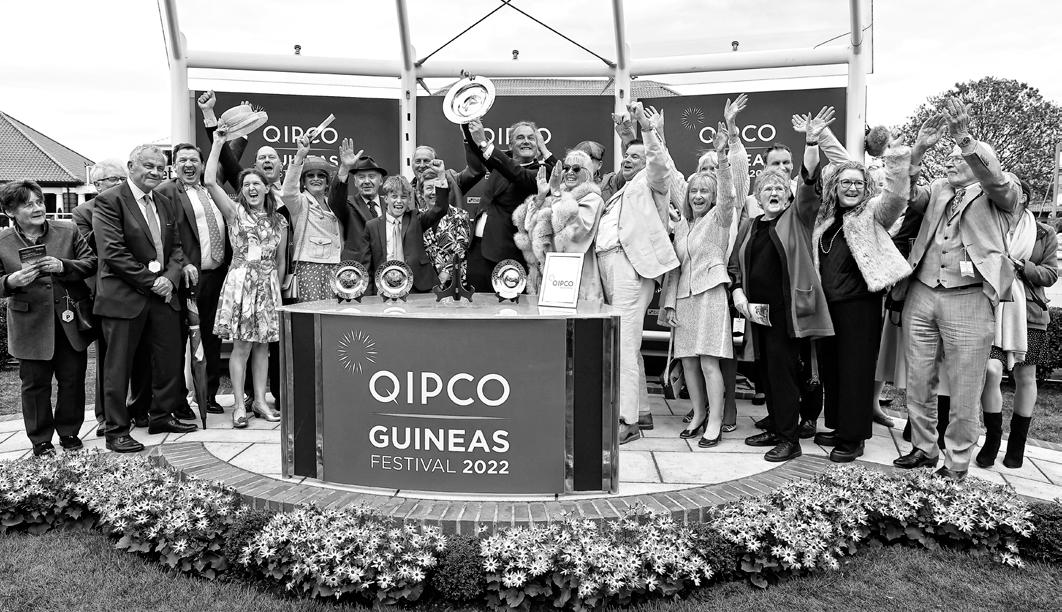

The Gambling Act Review was earmarked for publication in spring this year and the timeline for this continues to move (and in every likelihood will change again between writing to you and publication of this year’s Annual Report). The Gambling Act Review, as set out by the Minister for Sport, Tourism and Heritage plans to respect individuals’ right to gambling as a leisure activity, while also better protecting those at risk of gambling harm, through introducing affordability checks. Depending on the content of the report, this could have a sizeable impact on both the Racing Industry and Treasury. It is predicted, through the implementation of a blanket affordability check, that this could result in substantial annual losses of revenue and an even greater impact to the amount the gambling industry contributes to the Treasury. As time continues to march on and with changes to the incumbent government and resignation of Prime Minister Johnson it is difficult to predict what will be included in the report and what form these affordability checks might take. A lot of effort has gone into the Industry response to the possible scenarios of measures that could be introduced and the ROA has been able to contribute extensively to those efforts.
This year saw the industry combine forces to improve Diversity and Inclusion across the sport under a unified ‘Industry Commitment’, which aims to formalise the sport’s approach to diversity and inclusion and builds on current activity. The industry commitment to Diversity and Inclusion is underpinned by five key areas; leadership and accountability, good governance, education and awareness-raising, celebrating racing’s diversity and engaging new audiences.
am pleased to confirm that in 2021 the ROA purchased Thoroughbred Breeders’ Association’s (TBA) 50% stake in The Owner Breeder Magazine, which means the ROA is the outright owner of the publication. The magazine is viewed by many as one of the sport’s leading titles, promoting our industry and giving us a vehicle to explore all the issues facing owners, breeders and other industry participants. We plan to inject new momentum and fresh ideas to fuel the growth of this much loved publication in its next chapter.
2022 promises to be as challenging as the recent years that we have all experienced. The ROA will continue to play its part in defining the future for British Racing whether contributing to the strategy work, reacting to political determinations or working closely with the BHA on those areas that impact owners and our horses.
Charlie Parker
This year has seen us emerge from one of the most challenging periods in recent history. Racing has been widely commended as one of the first sports which launched a coordinated effort to get owners, horses, jockeys, trainers and fans back on racecourses.
One of the key takeaways following the pandemic is that horseracing and its participants are capable of working together to come up with some practical, innovative solutions. do not want the industry to lose sight of our ability to work together as we continue to shape, mould and modify a sport which is fit for the future.
Over the past twelve months the ROA has made significant progress in building a more modern organisation following the corporate governance review in 2021. We have identified a new governance and structure, and aligned the 16 recommendations, ratified by our members, which gives us a clear roadmap towards future success. We have identified the core skill set required and have recruited and invested in training to ensure that our talent, expertise and experience underpins the strategy. The delivery of this will build out an organisation which is fit for the future. As the wider industry continues to evolve and embarks on a journey to implement a new governance structure and introduce key changes. The ROA is well placed to shape these discussions and ensure the best interests of the owner remain at the forefront of industry discussions.
My team and continue to embed and deliver an ambitious ROA strategy to define racing’s future through focusing on a core set of values putting owners at the centre of everything we do. am cognisant that to effect change we need to collaborate effectively across the industry. I am pleased to share that the ROA continues to be active on key Industry Committees and Working Groups ensuring that owner’s views are represented and included in the decision making process. ROA President, Charlie Parker, continues to be a driving force on the BHA Board, Members Committee and The Thoroughbred Group. represent the ROA on the BHA Executive Committee, Fixtures and Funding Committee, Horse Welfare Board and at Stakeholder Board Meetings. In the Whip Review Working Group Board Members Celia Djivanovic and Tom Goff played a significant role in shaping the recommendations. Celia Djivanovic is a Board appointed Trustee at Retraining of Racehorses (RoR) and Chris Wright represents the ROA on the industry’s Brexit Steering Group. The Executive Team are also engaged in this space and bring a wealth of experience and expertise to the many facets of the Industry.
2022 saw record levels of prize money announced across the Sport, and this is attributed to a number of initiatives and bonus schemes. Prize money at the Jockey Club Racecourses (JCR) exceeded £58 million, which translated to record average prize money of £172,000 per fixture, an increase of £32,000 per fixture in comparison to 2021 and £14,000 per fixture more than the 2019 figure of £158,000. Arena Racing Company (ARC) made a number of welcome announcements regarding its prize money investment plan, which on a cumulative basis equates to over £21 million and adding to this ARC announced a new £1 million all-weather bonus scheme as well as their national hunt fixtures being run for a minimum of £75,000. This welcome trend was also seen north of the border, with Hamilton Park announcing that in 2022 its prize money would exceed £1.6 million for the first time. At the UK’s most iconic, landmark meetings, prize money exceeded pre-pandemic levels with the winner’s purse for the Grand National back to £1 million. At the Royal Meeting at Ascot a record £8,652,500 of prize money was on offer, an 18% increase on 2019 values. This included Royal Ascot’s first £2 million day on the Tuesday, featuring three Group 1 races. On the Wednesday, The Prince of Wales’ Stakes was the first Royal Ascot race to be worth £1 million and the newly-named Platinum Jubilee Stakes offered a total prize fund of £1 million on the Saturday. am genuinely heartened looking at this on a holistic level as to the progress being made but we must not lose sight of the absolute need to continue the advancement and improvement of critical prize funds for the Sport. There is, recognise, still much more to be done.
One of the key pillars of building-out the ROA moving forwards is creating partnerships across the Industry. The aim of developing strategic industry partnerships is to provide vital support to all parties through the sharing of people, knowledge and services whilst also increasing our exposure and opportunities for both the ROA and our partners. am delighted that this year we have further strengthened our partnerships with the Tote and Racing Welfare. All of Racing Welfare’s clothing is now co-branded with the ROA, to validate our commitment to supporting the people who work tirelessly for the Sport and look after your horses day in, day out, whatever the weather.
The relationship between the Tote and the ROA continues to grow from strength to strength. 2022 marks the second year in which the Tote has been sole underwriter of the ROA’s owner sponsorship scheme, with four schemes now running equating to over 1500 registered horses and close to 2,000 members benefiting from this programme. The Tote’s ambitious and innovative approach aligns closely with the ROA’s future aspirations for the sport. This year we saw the Tote announce its continued involvement in a series of World Pool Days. This is an incredibly positive piece of news for British racing, driving international interest in UK fixtures and helping bolster the prize funds at the majority of participating racecourses.
The ROA Board approved the Equality Diversity & Inclusion (ED&I) action plan in June 2021, a key part of the Organisation’s Corporate Governance review. This set out an achievable and actionable plan to ensure the ROA’s activities and workplace are in compliance with ED&I best practice in the UK. We continue to implement our Business Improvement Plan, taking a rigorous approach to ensuring that the organisation invests in technology and data. We have reviewed our structure to ensure we have an agile organisation which is fit for purpose and has the requisite talent, skills and experience to allow us to deliver against our ambition, whilst having the ability to flex where necessary. Our Business Improvement Plan is closely aligned with our strategy and delivering both in tandem sets out a clear roadmap for the organisation.
Sustainability is never far from the forefront of our minds and our move to the new Reading office helps us begin to further develop our commitment to adopting a more sustainable, environmentally conscious way of working. Our offices in Reading are 100% powered by renewable energy sources, with EV charging points available on site. We operate a strict sustainability policy, with minimal reliance on any single-use plastic and have a wholesale recycling policy in place. Across our operations, we are looking at wider industry best practice and standards to set out a road map for reducing our environmental impact towards a more sustainable future.
In 2022, we welcomed some new faces and said farewell to some loyal friends and colleagues. Steven Astaire retires from the Board having originally joined the ROA Board in 1990 and has dedicated over 25 years’ service representing owners on and off the racecourse. Steven brought a wealth of expertise and experience both as a long-term owner and as a retired amateur jockey. would like to personally thank Steven for his immeasurable dedication to the ROA and trust he records many futures successes as a National Hunt owner. I would also like to thank Sam Hoskins and Yvette Dixon for
their time and commitment during their respective tenures on the ROA board. I would like to recognise Yvette’s passion for Thoroughbred Aftercare and Equine Welfare, in particular representing the ROA as an RoR Trustee. Yvette was also passionate about ensuring that those owners who race at grass roots got a voice and we extend our thanks for her support in both of these key areas of ownership. Sam brought huge experience and passion with regards syndicates and the important role they play today and going forward across the sport. Sam’s insight was much needed, and our thanks go to him for his all of his help and support. Sadie Evans, our Membership Manager elected to leave the ROA after 22 years’ service. Sadie was a valued member of the team with a fervent passion and deep expertise from across the sport. On behalf of the team, we wish her well in her future endeavours. This year also saw us appoint a new Head of Communications, Lyndsay Harrison and a new Head of Finance Lissa Lowrie, both welcome additions to the Executive Team.
would like to sincerely thank the ROA Board, Team and our partners for all their hard work, dedication and support over the past year and look forward to continue working with them, identifying opportunities to grow and improve the ROA, as we continue in our mission to improve the owners experience on and off the racecourse. Looking forward to the coming months, there is still a large tranche of work to be undertaken. firmly believe the ROA is well positioned for successful delivery of this both at an Industry and Organisational level. Immediately around the next corner is the UK Government’s Levy review, which has been brought forward to 2022 from the original date, 2024.
I look forward to seeing you all on a racecourse soon. Charlie Liverton
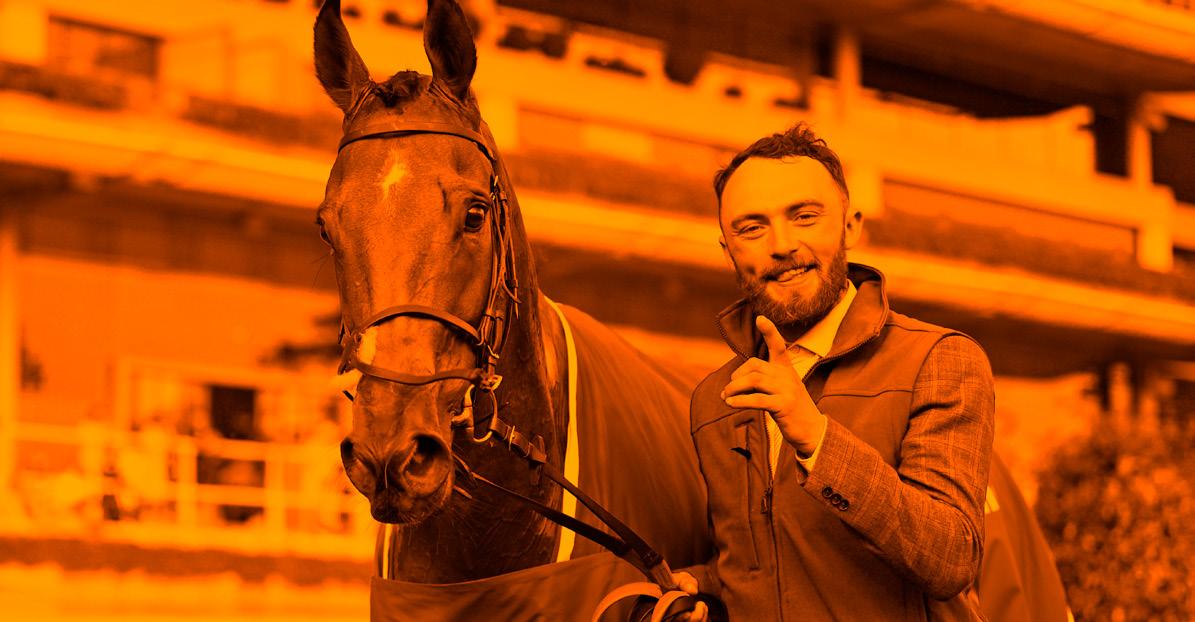
That provides outstanding benefits for owners and helps bring the passion of racehorse ownership and racing to life.
Produce and deliver exceptional membership benefits that both retains current and attracts new members
Represent the interests of owners through rigorous advocacy within the sport and in wider society
Promote ownership and racing –its joys and benefits – to current and future generations
Secure the future of the sport through the modernisation of ownership, standards and funding
Racecourse Accreditation
In March 2022 the ROA reactivated the Racecourse Accreditation Scheme, following a hiatus due to the pandemic. The ROA sees the racecourse experience as a huge part of the ownership experience and vital to retaining and attracting owners and spectators now and in the future. The ROA Racecourse Accreditation Scheme is an important area of the ROA’s work to increase engagement with racecourses in the feedback we receive from owners, which has continued throughout the pandemic. To date 39 racecourses have been independently assessed by the AA, with over 62% of the racecourses assessed achieving higher scores than those awarded in 2019, demonstrating the ROA’s continuous work to drive the standards and experience on racecourses for all racehorse owners. Owners direct feedback has been fully integrated into the Accreditation Scheme framework ensuring that owners views and opinions are at the heart of driving improvements across racing.
Shared Ownership
With the BHA’s Shared Ownership Regulatory Review completed in 2020, and associated recommendations starting to be introduced from 1st May 2021 the ROA, working in collaboration with GBR launched the Shared Ownership Initiative, focused on promoting Syndicate and Club ownership across seven raceday events in 2022. The initiative looks to drive engagement with racegoers and potential owners by showcasing the varied ownership options available. The ROA continue to collaborate with GBR across this area, understanding the significant growth across shared ownership in recent years.
The ROA continues to champion the voice of owners and works tirelessly to support all racehorse owners through effective Board representation, communication and benefits. In 2022 work commenced to enhance the offering for all racehorse owners and the work will continue in 2022/23 to launch new ownership benefits and accessibility, further enhancing the ownership experience. In addition, in 2021 the ROA VAT Solution was launched, supporting all owners in VAT matters utilising over 25 years experience of the Racehorse Owners VAT Scheme via an efficient and personal service which is fully compliant with HMRC and their new online strategy, Making Tax Digital.
Throughout 2022 the ROA has continued to work with industry stakeholders including trainers and racecourses to highlight and recognise the significant investment owners make to racing. This has encompassed working with ITV, other media outlets and various racecourses to feature owners in racing communications, whilst the ROA has continued to promote their Owner of the Day across all racing festivals. The incredible ownership stories they highlight are just one way of raising the profile of owners.
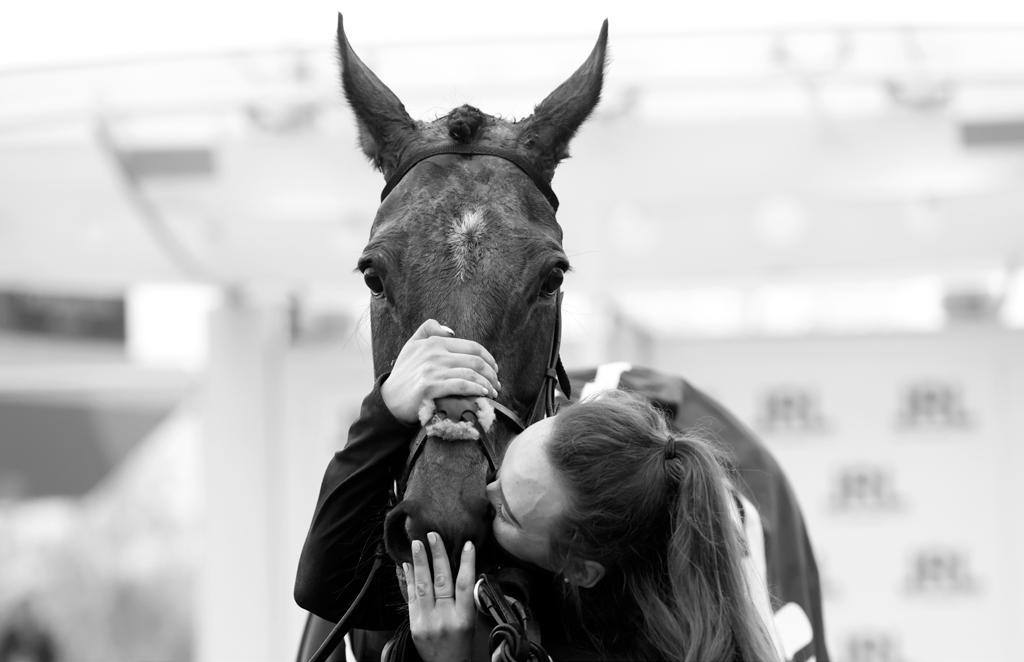
The ROA is an investor in the Tote, alongside a host of familiar owners and breeders in British racing, and we have been provided with regular updates on progress throughout the year. We’d now like to update all our members on the latest developments at the Tote.
We continue to be grateful to the Tote for supporting the ROA Owner Sponsorship Scheme with 1,635 horses included in the scheme in 2021, helping save owners c.£7.5 million in reclaimed VAT.
The Tote continues to make huge strides forward since the UK Tote Group acquired the 90-year old institution in October 2019.
Here’s how the Tote has progressed over the last year.
Product Innovation – Website, App and Text Betting
The Tote is continuing to revolutionise the betting experience for customers. The Tote should no longer be thought of as simply somewhere to place a bet when we are all on a racecourse. It now has a great digital platform at tote.co.uk and an easy-to-use App on iPhone and Android where you can place all your multi-leg and single leg bets.
For anyone at a racecourse, or any place where the Wi-Fi or phone networks are likely to be under pressure, there is also the option to use text betting which is incredibly fast and straightforward.
All you have to do is text the amount and horse name to 68683 (“6TOTE” on keyboard) – e.g. ‘10 Alcohol Free’ and the technology will do the rest (i.e. pick up your account via your telephone number and will find where the horse is running that day). You can do the same for each way and exacta betting – e.g. ‘10 ew Alcohol Free’ or ‘10 exacta Alcohol Free’
The Tote’s text betting service will generally recognise poor spelling, doesn’t require you to log in, and can be done from anywhere. Since you don’t need Wi-Fi to use the service, it provides a good alternative to App betting.
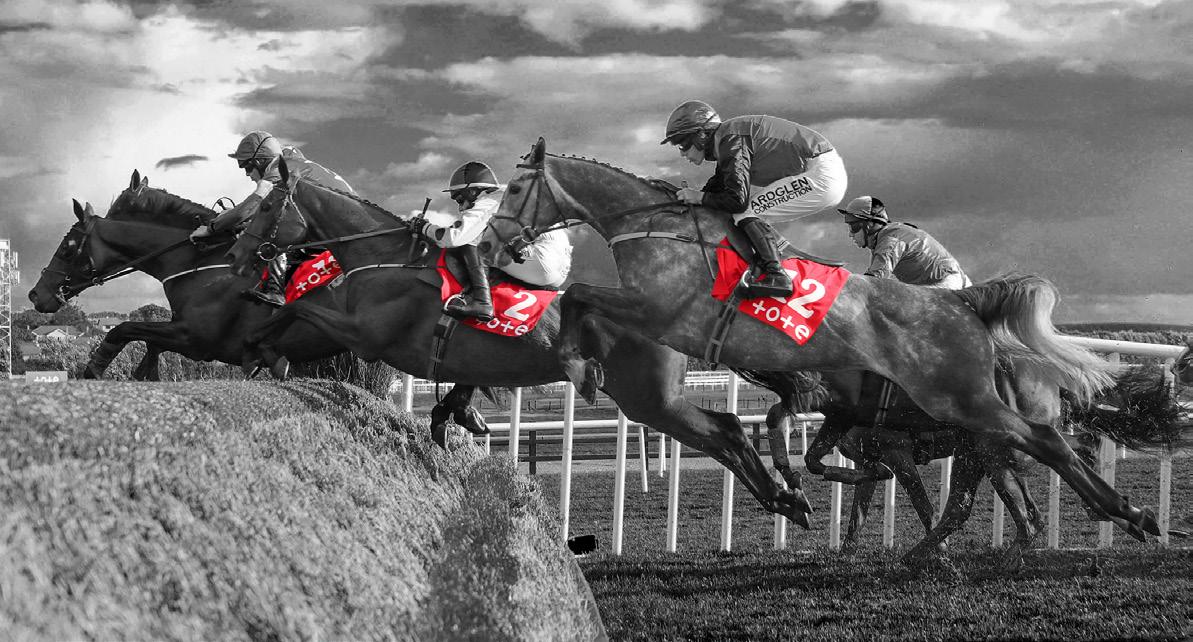
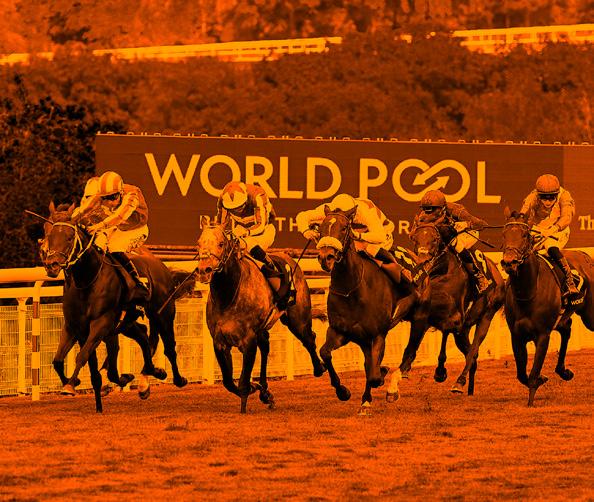
The British betting market continues to be the most competitive and customer-friendly in the world. The Tote has responded this by transforming the value of the pool which is increasingly being recognised by racing fans.
The two key propositions are:
● Tote Guarantee: This ensures the Tote Win price will always match the industry Starting Price (SP), or exceed it if the pool price is bigger, on all UK and Irish racing. This means Tote customers benefit from the bigger prices the pool can produce without ever losing out. Tote Guarantee is now available at racecourses and online. In the first half of 2022 the Tote+ Win price on tote.co.uk has exceeded the SP 52% of the time, and matched the SP on the remaining 48% of the time.
● Tote+: Tote+ (Tote Plus) provides all customers betting directly with the Tote a 10% dividend enhancement on all winning bets which can make a huge difference to the final sum collected by customers. For example, on the final day of Royal Ascot this year the placepot paid £79,125 to a £1 stake – or £87,038 if you bet directly with the Tote thanks to the 10% boost provided by Tote+.
One of the most popular innovations in recent months has been the launch of betting tournaments. These were launched at Cheltenham and Aintree and are now taking place on each of the 17 World Pool days in 2022.
“In my time at Ascot, the World Pool has been one of the most innovative initiatives we have been involved in and these new partnerships have proved hugely beneficial to racing at Ascot and the wider industry.”
Every Tote customer can join for free and be in with a chance of winning a share of prizes, with over £170,000 given out to date. The competition is based on profit earned (returns minus stakes) with the most successful players being those who place small stakes looking for high returns. For example, one player’s £16.80 Trifecta returned £2,951.73 and an £8 Scoop6 perm returned £26,000 giving both players their place in the Champions Tournament which will take place on QIPCO British Champions Day on 15th October.
As a collaboration of global Totes, World Pool enables racing fans from all over the globe to bet into a single pool. This creates huge liquidity and excellent value for racing fans.
Over the last year World Pool has gone from strength to strength, with volumes at all British racing meetings significantly up in 2022. This is because more bet types are available and there is greater awareness of the value on offer from World Pool.
Not only does World Pool help further internationalise the sport and shine the global spotlight on participating racecourses, it also generates critical betting revenue and increased media rights for the sport. World Pool has enabled many racecourses to return prize money to its pre-pandemic levels, and in the case of World Pool days exceed it, as well as providing funds to invest in racecourse facilities and other costs related to improving the race-goer experience. Therefore, World Pool is a key part of the future sustainable funding of the sport.
More to come from the Tote
In what continues to be a challenging time for British racing, we can take heart from the fact that the Tote is very much on the right track.

“World Pool is a brilliant new funding opportunity for the sport.”
Racing Welfare has seen a stratospheric rise in profile. This has meant that many more people have become aware of the breadth of the services on offer and, importantly, the range of people who can benefit.
The last 18 months have seen many more employees from racecourses, the racing media and administration roles accessing these services as pressure was brought to bear on different parts of the industry.
Although there was an unprecedented increase in the number of beneficiaries supported during 2020, the charity returned to more normal levels in 2021. However, the people being supported were needing help for longer and for a more complex range of issues as they recovered from the impact of the pandemic.
As a result, over the past twelve months, Racing Welfare has cemented services that were developed during the height of the pandemic. Services such as information, advice and guidance and community services combating loneliness and isolation were provided alongside those supporting people’s physical and mental health.
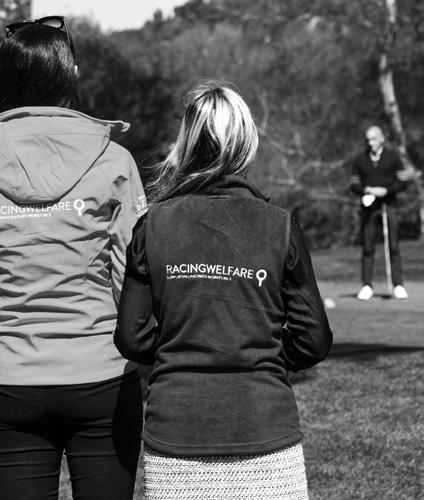
Financial assistance was once again the top concern for people seeking support with issues directly relating to Covid-19 in 2021. In response, Racing Welfare developed a targeted programme of grants, generously supported by the John Pearce Foundation, aimed specifically at increasing financial resilience for those living on or below the minimum income standard. £117, 920 in Covid-19 related grants were provided by the end of 2021. These grants ranged from general Covid-19 grants to self-isolation grants, as well as spring family support grants, festive family grants and return to school grants which provided vital support with the ever-increasing costs of school essentials such as uniform, P.E. kits and educational equipment.
Supporting the families of those working across the industry is key to the wellbeing of racing’s workforce and, given the current economic climate with steep increases in the cost of living, the critical work of preventing in-work poverty will remain high on the charity’s agenda.
Racing’s support line
A key highlight of 2021 was Racing Welfare’s partnership with employee assistance programme specialists, Care First. The new partnership was announced in January 2021 and has since gone from strength-to-strength, developing to a point where Racing’s Support Line is now a comprehensive Employee Assistance Programme and a very effective portal for many of Racing Welfare’s services.
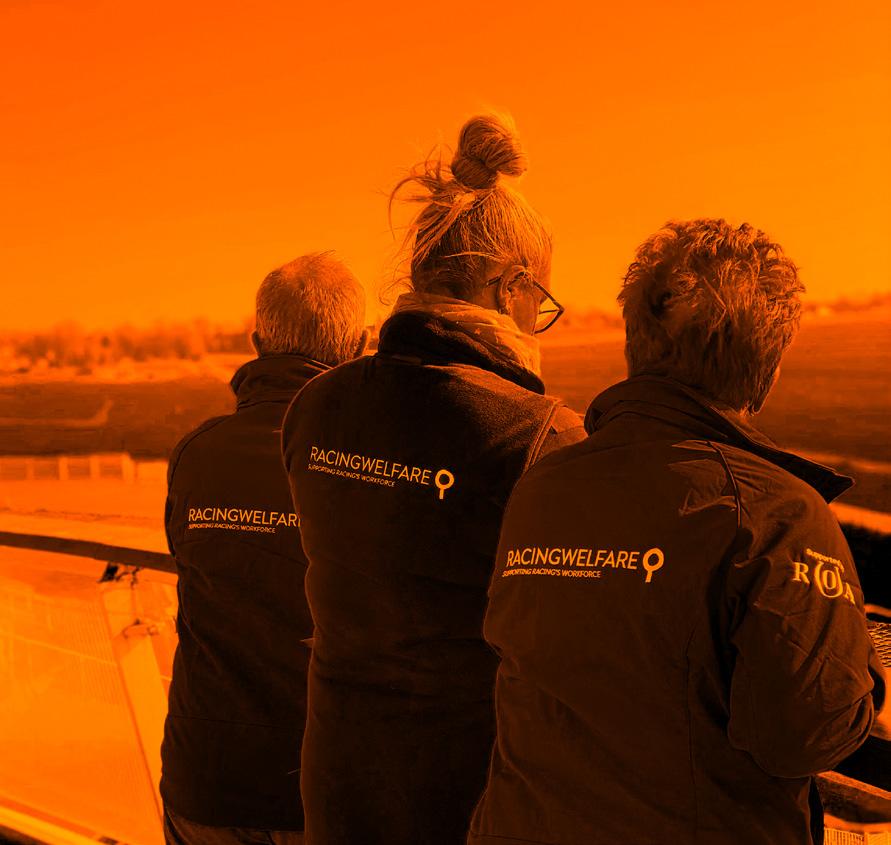
Workforce Wellbeing Racing Welfare’s Workforce Wellbeing programme (WWP) provides a fully bespoke service to the racing industry.
“If anyone feels like they need help, they shouldn’t hesitate in reaching out. Racing Welfare were very helpful; a massive thanks to them for the support they gave me and the work they do.”
Sam Cook Grounds Person Goodwood Racecourse and Racing Welfare beneficiary
Launched in January 2019 with a £3.89 million grant over three years from the Racing Foundation, the workforce wellbeing provision is driven by the desire to provide services which are proactive and preventative. The programme demonstrates Racing Welfare’s commitment to providing racing’s people with access to a comprehensive level of support for all of life’s issues. This commitment and the success of the WWP to date were deservedly recognised in 2021 when the programme won Wellbeing Initiative of the Year at the prestigious Workplace Savings and Benefits Awards.
Racing Welfare’s commitment to the wellbeing of racing’s workforce is further illustrated by the launch of the inaugural Health & Wellbeing across the Horseracing Industry Conference, which is the first of its kind. The conference will be held virtually on Monday 19th September 2022, with leading sports psychologist Michael Caulfield MSc announced as a keynote speaker.
In-person fundraising events welcomed back to calendar As a wholly charitably funded organisation, to be able to get back to physical events last year was a huge boon for fundraising.
Over the past twelve months Racing Welfare has welcomed back steadfast fundraising events including the Open Days at Malton, Epsom and Middleham to the delight of the huge crowds in attendance. A new challenge event was also inducted into the calendar, the Great Racing Welfare Cycle, a gruelling challenge which saw 27 intrepid cyclists cover 500 miles over five days, from Carlisle to Newton Abbot taking on some of the country’s most daunting climbs.
The ROA has supported several Racing Welfare events, not least with headline sponsorship for the Epsom Owners and Trainers Awards held in November. The strategic partnerships between the two organisations was formalised in 2022, with the ROA logo added to all Racing Welfare uniform and a commitment to collaboration and to sharing key messaging. The partnership also serves to further cement the connection between owners and racing’s workforce, who both play crucial roles in making our amazing sport possible.
Thank you to each and every one of Racing Welfare’s supporters, without whom the charity’s vital services would cease to exist.
As part of the 2022 BHA structural review and announcement of organisational changes, it reconfirmed its strategic objectives relating to Equine Welfare. Thereby, ensuring the welfare of our horses is prioritised in everything we do and the racing public see this.
This is underpinned by five key areas of focus;
● Deliver operational excellence in the BHA areas of responsibility for the welfare of our horses, including the implementation of a world-class anti-doping programme
● Play the central role in supporting the independent Horse Welfare Board to successfully implement the industry’s ‘Life Well Lived’ strategy, through the provision of robust data and evidence, expertise, resource and co-ordination
● Contribute to the development of the Collective Lifetime Responsibility for our horses: from breeding to after-care, improvements in traceability and the Welfare Funding Model
● Delivery of a strategy focused in best possible safety for all of our participants
● Development of an industry-wide programme in respect of the welfare of the horse
Horse Welfare Bpard (HWB) Aftercare Funding Review HEROS, the aftercare and retraining specialist has been appointed as the new primary partner for British Horseracing’s official welfare charity, Retraining of Racehorses (RoR), for the provision of specialist care and support for horses at their first step out of racing.
HEROS will continue to provide high quality care for any thoroughbred exiting racing that may need extended time and additional resource to support retraining or recuperation. As part of the service, full assessments of each individual animal will be carried out with bespoke programmes designed and implemented to help transition them successfully to their next stage of life. Once a horse has been approved for rehoming, HEROS will then use its extensive network, and that of Retraining of Racehorses (RoR) to help match each horse to an appropriate owner. For anyone new to owning a thoroughbred, a range of educational and support programmes will also be offered to ensure both horse and owner have the appropriate foundations in place to set them up for success. In partnership with RoR, HEROS will receive additional funds to support their new role and expanded responsibilities for British horseracing.
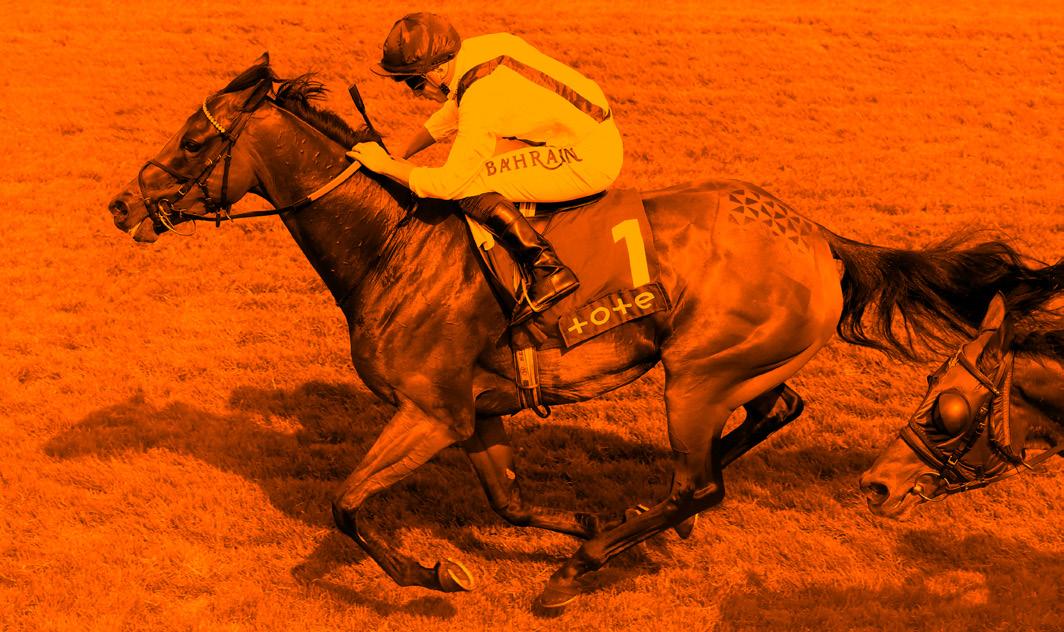
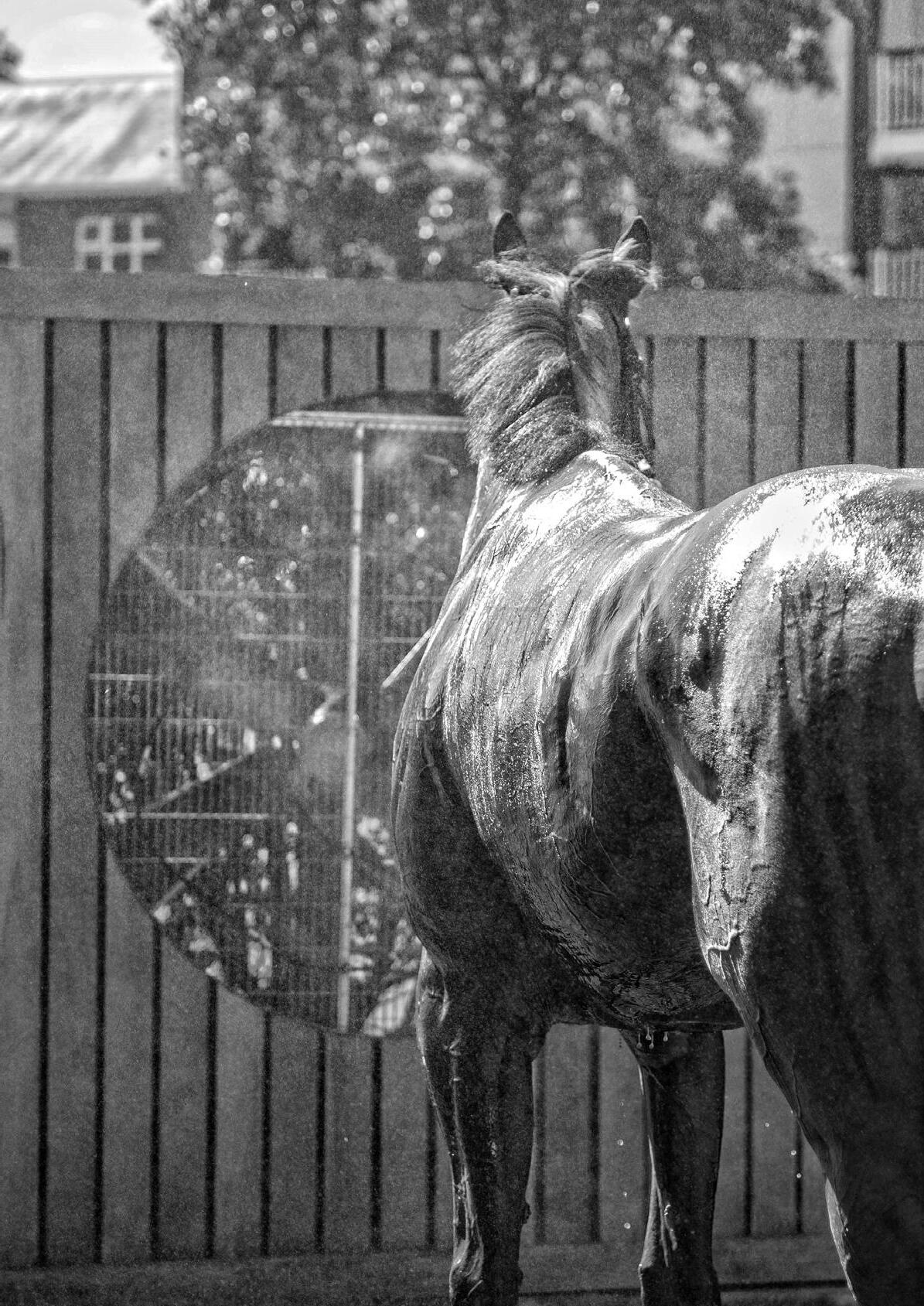
DURING THE SECOND HALF OF 2022, ROR WILL DELIVER AN INTERNAL RESTRUCTURING PROGRAMME, AND A NEW MANAGING DIRECTOR WILL BE RECRUITED TO DRIVE CHANGE ALONGSIDE DEVELOPING AND IMPLEMENTING AN UPDATED STRATEGY.
The number of current members has started to show a level of recovery following the pandemic period, with current membership numbers now tracking 2021. The cancellations of members continues to be driven by owners who no longer own horses, which will be encompassed as part of the ROA broadening out its membership offering in 2022/23. The ROA membership continues to reflect over 85.2% of all registered owners.
Following the pandemic 2021 showed significant growth across the core KPIs, and whilst 2022 data suggests they are tracking slightly behind in some areas the ability to recover remains a key focus for the Industry.
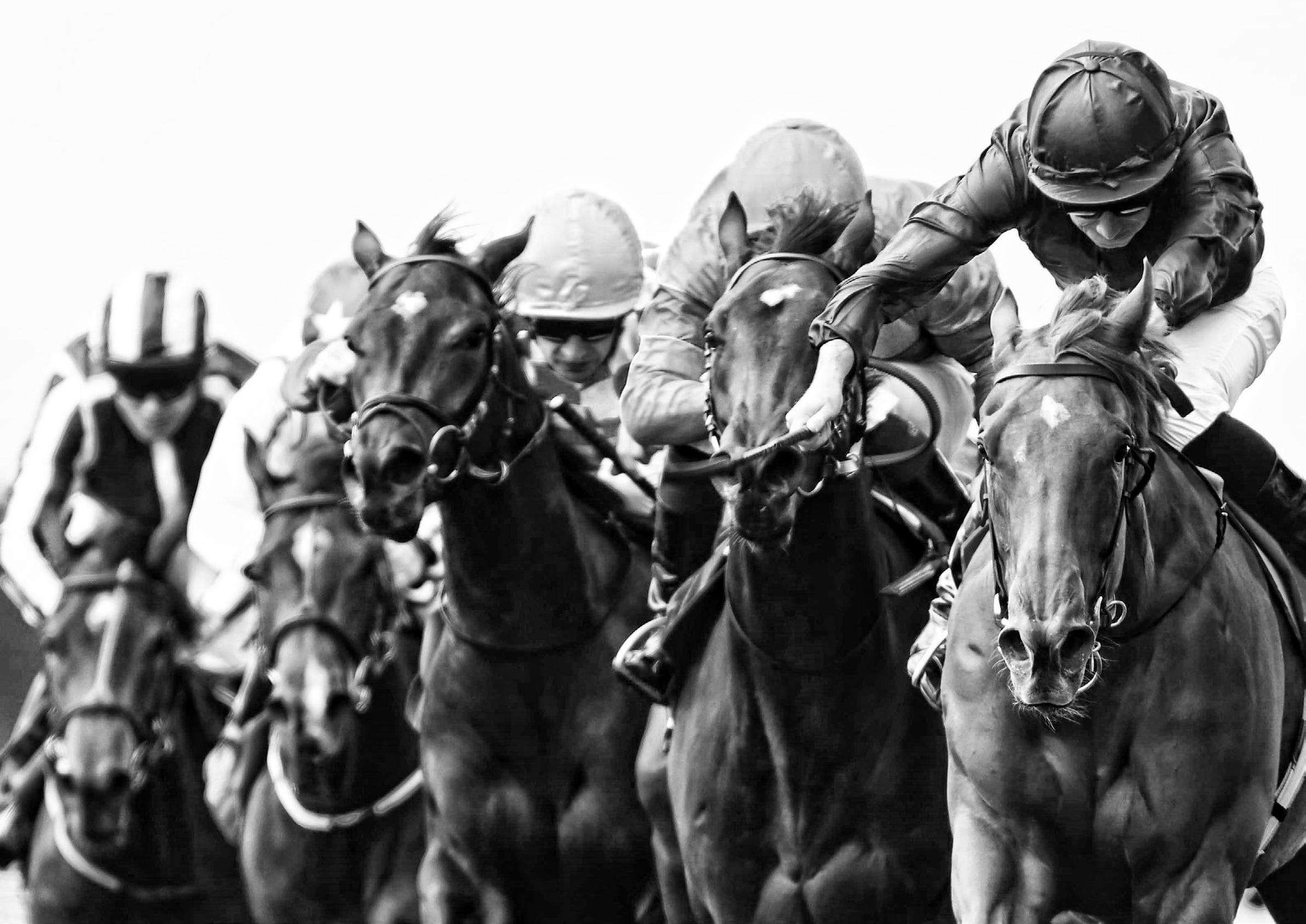
FOR THE YEAR ENDED 31ST MARCH 2022
The directors present their annual report and financial statements for the year ended 31 March 2022.
Principal activities
The principal activity of the Association continued to be that of promoting and supporting the interests of racehorse owners in Great Britain funded through membership subscriptions.
Directors
The directors who held office during the year and up to the date of signature of the financial statements were as follows:
K Almudhaf (appointed 1 September 2021)
S Astaire
P Davies MP (appointed 1 September 2021)
Y Dixon
C J Djivanovic
R T Goff
A J Hamilton Fairley (appointed 1 September 2021)
R S Hoskins (resigned 31 March 2022)
G Kelleway
C O A Liverton (appointed 1 September 2021)
J K McGarrity (appointed 1 September 2021)
C M Parker
A D Spence
C Wright CBE
Auditor
RSM UK Audit LLP have indicated their willingness to be reappointed for another term and appropriate arrangements have been put in place for them to be deemed reappointed as auditors in the absence of an Annual General Meeting.
Statement of disclosure to auditor
So far as each person who was a director at the date of approving this report is aware, there is no relevant audit information of which the company’s auditor is unaware.
Additionally, each director has taken all the necessary steps that they ought to have taken as a director in order to make themselves aware of all relevant audit information and to establish that the company’s auditor is aware of that information.
Small companies exemption
This report has been prepared in accordance with the provisions applicable to companies entitled to the small companies exemption.
Company law requires the directors to prepare financial statements for each financial year. Under that law the directors have elected to prepare the financial statements in accordance with United Kingdom Generally Accepted Accounting Practice (United Kingdom Accounting Standards and applicable law). Under company law the directors must not approve the financial statements unless they are satisfied that they give a true and fair view of the state of affairs of the company and of the surplus or deficit of the company for that period. In preparing these financial statements, the directors are required to:
● select suitable accounting policies and then apply them consistently;
● make judgements and accounting estimates that are reasonable and prudent;
● prepare the financial statements on the going concern basis unless it is inappropriate to presume that the company will continue in business.
The directors are responsible for keeping adequate accounting records that are sufficient to show and explain the company’s transactions and disclose with reasonable accuracy at any time the financial position of the company and enable them to ensure that the financial statements comply with the Companies Act 2006. They are also responsible for safeguarding the assets of the company and hence for taking reasonable steps for the prevention and detection of fraud and other irregularities.
Opinion
We have audited the financial statements of The Racehorse Owners Association Limited (the ‘company’) for the year ended 31 March 2022 which comprise the statement of comprehensive income, the statement of financial position and notes to the financial statements, including significant accounting policies.
The financial reporting framework that has been applied in their preparation is applicable law and United Kingdom Accounting Standards, including FRS 102 “The Financial Reporting Standard applicable in the UK and Republic of Ireland” (United Kingdom Generally Accepted Accounting Practice).
In our opinion, the financial statements:
● give a true and fair view of the state of the company’s affairs as at 31 March 2022 and of its deficit for the year then ended;
● have been properly prepared in accordance with United Kingdom Generally Accepted Accounting Practice;
● have been prepared in accordance with the requirements of the Companies Act 2006.
Basis for opinion
8th August 2022
Directors’ Responsibilities Statement for the year ended 31 March 2022
The directors are responsible for preparing the Directors’ Report and the financial statements in accordance with applicable law and regulations.
We conducted our audit in accordance with International Standards on Auditing (UK) (ISAs (UK)) and applicable law. Our responsibilities under those standards are further described in the Auditor’s responsibilities for the audit of the financial statements section of our report. We are independent of the company in accordance with the ethical requirements that are relevant to our audit of the financial statements in the UK, including the FRC’s Ethical Standard, and we have fulfilled our other ethical responsibilities in accordance with these requirements. We believe that the audit evidence we have obtained is sufficient and appropriate to provide a basis for our opinion.
Conclusions relating to going concern
In auditing the financial statements, we have concluded that the directors’ use of the going concern basis of accounting in the preparation of the financial statements is appropriate.
Based on the work we have performed, we have not identified any material uncertainties relating to events or conditions that, individually or collectively, may cast significant doubt on the company’s ability to continue as a going concern for a period of at least twelve months from when the financial statements are authorised for issue.
Our responsibilities and the responsibilities of the directors with respect to going concern are described in the relevant sections of this report.
Other information
The other information comprises the information included in the annual report, other than the financial statements and our auditor’s report thereon. The directors are responsible for the other information contained within the annual report. Our opinion on the financial statements does not cover the other information and, except to the extent otherwise explicitly stated in our report, we do not express any form of assurance conclusion thereon.
Our responsibility is to read the other information and, in doing so, consider whether the other information is materially inconsistent with the financial statements or our knowledge obtained in the course of the audit or otherwise appears to be materially misstated. If we identify such material inconsistencies or apparent material misstatements, we are required to determine whether this gives rise to a material misstatement in the financial statements themselves. If, based on the work we have performed, we conclude that there is a material misstatement of this other information, we are required to report that fact.
We have nothing to report in this regard.
Opinions on other matters prescribed by the Companies Act 2006
In our opinion, based on the work undertaken in the course of the audit:
● the information given in the directors’ report for the financial year for which the financial statements are prepared is consistent with the financial statements; and
● the directors’ report has been prepared in accordance with applicable legal requirements.
Matters on which we are required to report by exception
In the light of the knowledge and understanding of the company and its environment obtained in the course of the audit, we have not identified material misstatements in the directors’ report.
We have nothing to report in respect of the following matters in relation to which the Companies Act 2006 requires us to report to you if, in our opinion:
● adequate accounting records have not been kept, or returns adequate for our audit have not been received from branches not visited by us; or
● the financial statements are not in agreement with the accounting records and returns; or
● certain disclosures of directors’ remuneration specified by law are not made; or
● we have not received all the information and explanations we require for our audit; or
● the directors were not entitled to prepare the financial statements in accordance with the small companies regime and take advantage of the small companies exemption from the requirement to prepare a strategic report or in preparing the directors’ report.
Responsibilities of directors
As explained more fully in the directors’ responsibilities statement set out on page 21, the directors are responsible for the preparation of the financial statements and for being satisfied that they give a true and fair view, and for such internal control as the directors determine is necessary to enable the preparation of financial statements that are free from material misstatement, whether due to fraud or error.
In preparing the financial statements, the directors are responsible for assessing the company’s ability to continue as a going concern, disclosing, as applicable, matters related to going concern and using the going concern basis of accounting unless the directors either intend to liquidate the company or to cease operations, or have no realistic alternative but to do so.
Auditor’s responsibilities for the audit of the financial statements
Our objectives are to obtain reasonable assurance about whether the financial statements as a whole are free from material misstatement, whether due to fraud or error, and to issue an auditor’s report that includes our opinion. Reasonable assurance is a high level of assurance, but is not a guarantee that an audit conducted in accordance with ISAs (UK) will always detect a material misstatement when it exists. Misstatements can arise from fraud or error and are considered material if, individually or in the aggregate, they could reasonably be expected to influence the economic decisions of users taken on the basis of these financial statements.
The extent to which the audit was considered capable of detecting irregularities, including fraud Irregularities are instances of non-compliance with laws and regulations. The objectives of our audit are to obtain sufficient appropriate audit evidence regarding compliance with laws and regulations that have a direct effect on the determination of material amounts and disclosures in the financial statements, to perform audit procedures to help identify instances of non-compliance with other laws and regulations that may have a material effect on the financial statements, and to respond appropriately to identified or suspected non-compliance with laws and regulations identified during the audit.
In relation to fraud, the objectives of our audit are to identify and assess the risk of material misstatement of the financial statements due to fraud, to obtain sufficient appropriate audit evidence regarding the assessed risks of material misstatement due to fraud through designing and implementing appropriate responses and to respond appropriately to fraud or suspected fraud identified during the audit.
However, it is the primary responsibility of management, with the oversight of those charged with governance, to ensure that the entity’s operations are conducted in accordance with the provisions of laws and regulations and for the prevention and detection of fraud.
In identifying and assessing risks of material misstatement in respect of irregularities, including fraud, the audit engagement team:
● obtained an understanding of the nature of the industry and sector, including the legal and regulatory frameworks that the company operates in and how the company is complying with the legal and regulatory frameworks;
● inquired of management, and those charged with governance, about their own identification and assessment of the risks of irregularities, including any known actual, suspected or alleged instances of fraud;
● discussed matters about non-compliance with laws and regulations and how fraud might occur including assessment of how and where the financial statements may be susceptible to fraud.
As a result of these procedures we consider the most significant laws and regulations that have a direct impact on the financial statements are FRS 102, the Companies Act 2006 and tax compliance regulations. We performed audit procedures to detect non-compliances which may have a material impact on the financial statements which included reviewing financial statement disclosures and inspecting any correspondence with external tax advisors.
The audit engagement team identified the risk of management override of controls and completeness of revenue as the areas where the financial statements were most susceptible to material misstatement due to fraud. Audit procedures performed included but were not limited to testing manual journal entries and other adjustments and evaluating the business rationale in relation to any significant, unusual transactions and transactions entered into outside the normal course of business and performing tests of detail on revenue recognised in the year and subsequent to the year end.
A further description of our responsibilities for the audit of the financial statements is located on the Financial Reporting Council’s website at: https://www.frc.org.uk/auditorsresponsibilities This description forms part of our auditor’s report.
Use of our report
This report is made solely to the company’s members, as a body, in accordance with Chapter 3 of Part 16 of the Companies Act 2006. Our audit work has been undertaken so that we might state to the company’s members those matters we are required to state to them in an auditor’s report and for no other purpose. To the fullest extent permitted by law, we do not accept or assume responsibility to anyone other than the company and the company’s members as a body, for our audit work, for this report, or for the opinions we have formed.
Claire Sutherland Senior Statutory Auditor
For
C M Parker Director
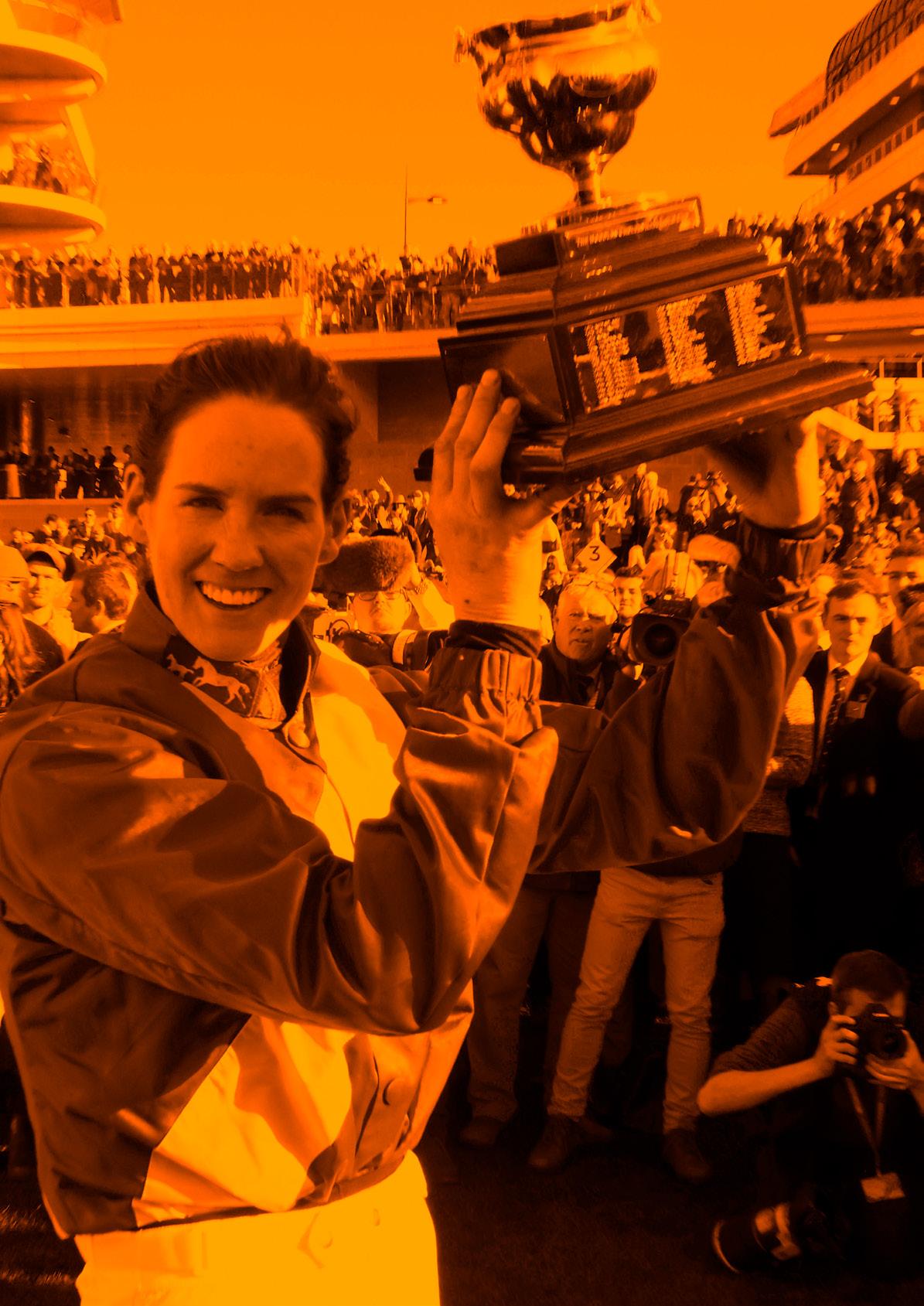
FOR THE YEAR ENDED
31ST MARCH 2022
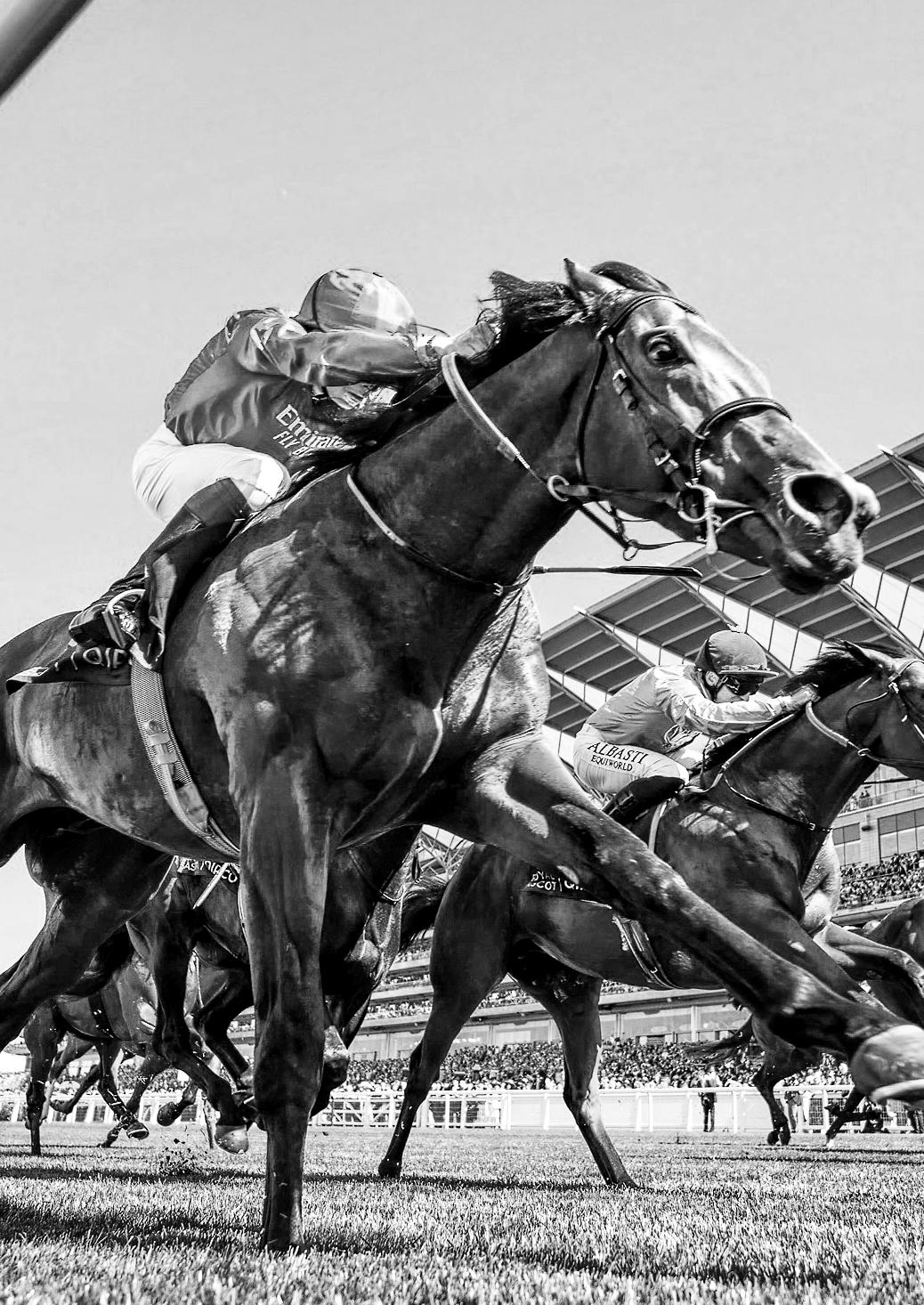
Company information
The Racehorse Owners Association Limited is a private company limited by guarantee and is registered and incorporated in England and Wales. The registered office is 12 Forbury Road, Reading, Berkshire, RG1 1SB.
Accounting convention
These financial statements have been prepared in accordance with FRS 102 “The Financial Reporting Standard applicable in the UK and Republic of Ireland” (“FRS 102”) and the requirements of the Companies Act 2006 as applicable to companies subject to the small companies regime. The disclosure requirements of section 1A of FRS 102 have been applied other than where additional disclosure is required to show a true and fair view.
The financial statements are prepared in sterling, which is the functional currency of the company. Monetary amounts in these financial statements are rounded to the nearest £.
The financial statements have been prepared under the historical cost convention. The principal accounting policies adopted are set out below.
The company has taken advantage of the exemption under section 399 of the Companies Act 2006 not to prepare consolidated accounts, on the basis that the group of which this is the parent qualifies as a small group. The financial statements present information about the company as an individual entity and not about its group.
Going concern
At the time of approving the financial statements, the directors have a reasonable expectation that the company has adequate resources to continue in operational existence for the foreseeable future. This is based on financial projections to the period 30 September 2023 which do not identify any issues that would give rise to a material uncertainty in relation to going concern. Thus the directors continue to adopt the going concern basis of accounting in preparing the financial statements.
Income and expenses are included in the financial statements as they become receivable or due.
Income from events is recognised when the entity is legally entitled to the income. Entitlement is the earlier of the date of the event or the date on which a non-refundable booking is made.
Income from provision of services is recognised on a receivable basis in line with when the services are completed.
Grants
Grants relating to revenue are recognised in income on a systematic basis over the period to which the entity recognises the related costs for which the grant is intended to compensate.
Members’ subscriptions
Members’ subscriptions are accounted for on an accruals basis, in compliance with Section 23 of FRS 102. When the company receives subscription income from a member in advance, a liability is recognised of an equal amount. Over the period to which the subscription relates the liability is proportionately reduced and recognised as revenue.
Intangible fixed assets other than goodwill
Intangible assets, including website development costs, are recognised at cost and are subsequently measured at cost less accumulated amortisation and accumulated impairment losses.
Amortisation is recognised so as to write off the cost of assets less their residual values over their useful lives on the following bases:
Software 20% per annum on cost
Tangible fixed assets
Tangible fixed assets are initially measured at cost and subsequently measured at cost, net of depreciation and any impairment losses.
Depreciation is recognised so as to write off the cost of assets less their residual values over their useful lives on the following bases:
Leasehold improvements 10 years straight line
Other plant and machinery 20% straight line
Fixed asset investments
Interests in subsidiaries and associates are initially measured at cost and subsequently measured at cost less any accumulated impairment losses. The investments are assessed for impairment at each reporting date and any impairment losses or reversals of impairment losses are recognised immediately in profit or loss.
A subsidiary is an entity controlled by the company. Control is the power to govern the financial and operating policies of the entity so as to obtain benefits from its activities.
Trade investments are initially measured at fair value, which is normally the transaction price. Such assets are subsequently carried at fair value and the changes in fair value are recognised in profit or loss, except that investments in equity instruments that are not publicly traded and whose fair values cannot be measured reliably are measured at cost less impairment.
Cash and cash equivalents
Cash and cash equivalents are basic financial instruments and include cash in hand, deposits held at call with banks and other short-term liquid investments with original maturities of three months or less.
Financial instruments
The company has elected to apply the provisions of Section 11 ‘Basic Financial Instruments’ and Section 12 ‘Other Financial Instruments Issues’ of FRS 102 to all of its financial instruments.
Financial instruments are recognised when the company becomes party to the contractual provisions of the instrument.
Financial assets and liabilities are offset, with the net amounts presented in the financial statements, when there is a legally enforceable right to set off the recognised amounts and there is an intention to settle on a net basis or to realise the asset and settle the liability simultaneously.
Basic financial assets
Basic financial assets, which include trade and other debtors and loans due from associate companies, are initially measured at transaction price including transaction costs and are subsequently carried at amortised cost using the effective interest method.
Other financial assets
Other financial assets, including trade investments, are initially measured at fair value, which is normally the transaction price. Such assets are subsequently carried at fair value and the changes in fair value are recognised in surplus or deficit, except that investments in equity instruments that are not publicly traded and whose fair values cannot be measured reliably are measured at cost less impairment.
Basic
Basic financial liabilities, including trade and other creditors, are initially recognised at transaction price and are subsequently carried at amortised cost.
Taxation
The company is exempt from corporation tax, other than on its investment income, it being a company not carrying on a business for the purposes of making a profit.
Provisions
Provisions are recognised when the company has a legal or constructive present obligation as a result of a past event, it is probable that the company will be required to settle that obligation and a reliable estimate can be made of the amount of the obligation.
The amount recognised as a provision is the best estimate of the consideration required to settle the present obligation at the reporting end date, taking into account the risks and uncertainties surrounding the obligation. Where the effect of the time value of money is material, the amount expected to be required to settle the obligation is recognised at present value. When a provision is measured at present value, the unwinding of the discount is recognised as a finance cost in surplus or deficit in the period in which it arises.
Employee benefits
The costs of short-term employee benefits are recognised as a liability and an expense.
Leases
All other leases are operating leases and the annual rentals are charged to profit or loss on a straight line basis over the lease term. Rent free periods or other incentives received for entering into an operating lease are accounted for as a reduction to the expense and are recognised on a
basis over the lease term.
On 8 June 2004 the company became a member of Owner Breeder Media Group Limited (formerly Thoroughbred Owner & Breeder Limited), a company registered in England and Wales, limited by guarantee, and not having share capital. The liability of its members is limited to £1 each and nothing was paid for the investment. As such there is no asset in the accounts. At 31 March 2021 there were two members of this company. On 1 July 2021 the company purchased the other member’s interest in Owner Breeder Media Group Limited for £100,000 purchase consideration to leave The Racehorse Owners Association Limited as the sole member and this is now recognised as a subsidiary of the company. Owner Breeder Media Group Limited produces a magazine for members.
On 16 June 2006 the company became a member of Horsemen Limited, a company registered in England and Wales, limited by guarantee, and not having share capital. The liability of its members is limited to £1 each and nothing was paid for the investment. As such there is no asset in the accounts. At the balance sheet date there were five members of this company. The company represents the collective interests of owners, trainers, breeders, jockeys and stable staff.
On 31 July 2007 the company became a member of British Horseracing Authority Limited, a company registered in England and Wales, limited by guarantee, and not having share capital. The liability of its members is limited to £1 each and nothing was paid for the investment. As such there is no asset in the accounts. At the balance sheet date there were four members of this company. The company is the regulatory and governing body of horseracing in Great Britain. British Horseracing Authority Limited have two wholly owned subsidiaries, Great British Racing Limited and British Horseracing Database Limited. Both companies are registered in England and Wales. The principal activity of Great British Racing Limited is the commercialisation of the contents of the Racing Administration database through access and user licence agreements with third parties, whilst British Horseracing Database Limited’s principal activity is the maintenance and licences of the database.
On 10 June 2019 the company became a member of UK Tote Group Limited a company registered in England & Wales.
At 31 March 2021, the cost of the investment was recorded at £350,000 in the accounts, on 8 December 2021 the company increased the investment by £51,915 and this is now valued at £401,915.
10 PROVISIONS FOR LIABILITIES
8
Co-opted:
